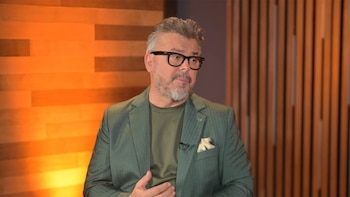The International Paralympic Committee (IPC) has announced Brazilian powerlifter Emerson Barbosa has been banned for life and fined EUR 1,500 for committing a second Anti-Doping Rule violation in the space of five years.
Barbosa's second violation occurred following an out-of-competition blood and urine test on 4 April 2014 prior to the 2014 IPC Powerlifting World Championships in Dubai, UAE.
His sample returned an adverse analytical finding for Methasterone metabolite. This substance is included on the World Anti-Doping Agency (WADA) 2014 Prohibited List under the category S1.1A Exogenous Anabolic Androgenic Steroids. It is prohibited both in and out of competition.
As this was Barbosa's second Anti-Doping violation, the hearing panel decided to ban him for life and fine him EUR 1,500. He also had all results obtained from the date of the test and onwards, disqualified with all the resulting consequences including forfeiture of any medals, points, records and prizes.
Barbosa's previous anti-doping violation in 2009 saw him test positive for Oxandrolone, which is an anabolic steroid. He was given a two year sanction from the Brazilian National Paralympic Committee and suspended from 16 May 2009 until 15 May 2011.
The principle of strict liability applies to anti-doping matters. Therefore, each athlete is strictly liable for the substances found in his or her sample, and that an anti-doping rule violation occurs whenever a prohibited substance (or its metabolites or markers) is found in his or her bodily specimen, whether or not the athlete intentionally or unintentionally used a prohibited substance or was negligent or otherwise at fault.
As a signatory of the World Anti-Doping Code (WADC), the IPC remains committed to a doping free sporting environment at all levels. The IPC, together with the International Federations and the National Paralympic Committees, established the IPC Anti-Doping Code to prevent doping in sport for Paralympic athletes, in the spirit of fair play. The IPC Anti-Doping Code is in conformity with the general principles of the WADC.
In July 2014, the IPC announced it is considering taking action against National Paralympic Committees (NPCs) as part of a range of measures to reduce the number of anti-doping violations in para-sport, in particular the sport of powerlifting.
For further information, please contact:
Craig Spence
IPC Director of Media and Communications
e-mail: craig.spence@paralympic.org
call +49-228-2097-230
Alternatively, please visit www.paralympic.org
20 Years at #1: Your best source of news about the Olympics is www.aroundtherings.com, for subscribers only
Últimas Noticias
Sinner-Alcaraz, the duel that came to succeed the three phenomenons
Table tennis: Brazil’s Bruna Costa Alexandre will be Olympic and Paralympic in Paris 2024

Rugby 7s: the best player of 2023 would only play the medal match in Paris

Rhonex Kipruto, owner of the world record for the 10000 meters on the road, was suspended for six years

Katie Ledecky spoke about doping Chinese swimmers: “It’s difficult to go to Paris knowing that we’re going to compete with some of these athletes”



